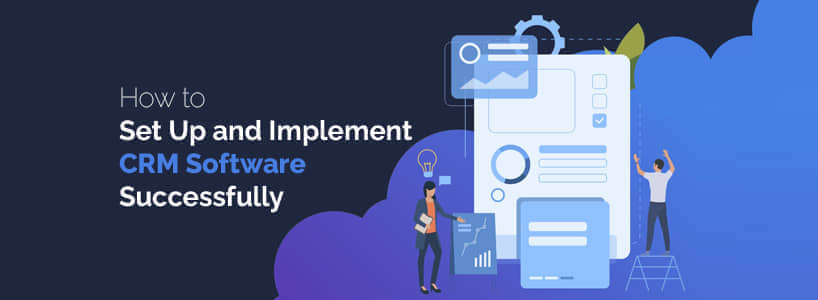In today's competitive business landscape, fostering strong customer relationships is paramount. A well-implemented Customer Relationship Management (CRM) software can be a game-changer, streamlining processes, boosting sales, and enhancing customer satisfaction. But simply acquiring a CRM isn't enough. Here's a roadmap to ensure a smooth setup and successful CRM implementation:
1. Define Your CRM Goals and Needs
Before diving into software options, take a step back. Identify your company's specific CRM Goals. Are you aiming to improve lead nurturing, streamline sales pipelines, or enhance customer service? Understanding your needs helps select a CRM that caters to your priorities.
2. Assemble Your CRM Team
Building a dedicated CRM team fosters a sense of ownership and ensures a smooth rollout. Include representatives from different departments (sales, marketing, customer service) to gain diverse perspectives.
3. Evaluate CRM Solutions
With your goals in mind, research CRM solutions. Popular options include Salesforce, HubSpot CRM, and Zoho CRM. Consider factors like scalability, budget, features, and ease of use. Explore free trials or demos to get a feel for the software's functionality.
4. Prioritize Data Migration and Cleansing
Dirty data can contaminate your CRM's effectiveness. Dedicate time to cleaning and organizing existing customer data before migration. Ensure consistency in formatting and eliminate duplicates. Many CRMs offer data migration tools to ease this process.
5. Craft a User-Friendly CRM Experience
A CRM shouldn't add complexity. Customize dashboards and reports to provide clear, actionable insights for each department. Utilize features like drag-and-drop automation to streamline workflows and free up valuable time.
6. Invest in Comprehensive User Training
Comprehensive user training empowers your team to leverage the CRM's full potential. Develop training materials that cater to different learning styles, incorporating video tutorials, interactive workshops, and cheat sheets.
7. Encourage User Adoption and Feedback
Post-implementation support is crucial. Address user concerns promptly and encourage continuous feedback. Utilize feedback to refine workflows and personalize the CRM experience for your team.
8. Integrate Your CRM with Existing Tools
Modern CRMs integrate seamlessly with various business tools like email marketing platforms and accounting software. Leverage these integrations to create a unified data ecosystem, eliminating the need for manual data entry.
9. Continuously Monitor and Optimize
Track key metrics like lead conversion rates and customer satisfaction scores. Analyze reports to identify areas for improvement. Be ready to adapt your CRM strategy based on real-time data insights.
By following these steps, you can transform your CRM implementation from a daunting task into a springboard for success. Remember, a CRM is a powerful tool, but it's your company's commitment to building strong customer relationships that will ultimately drive long-term growth.
